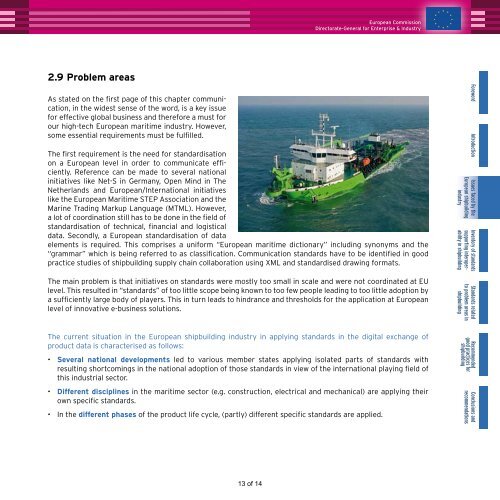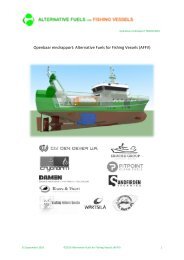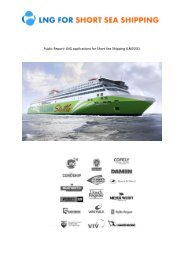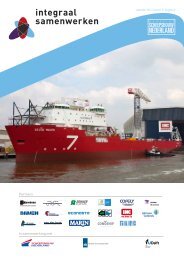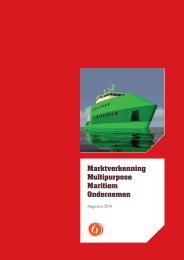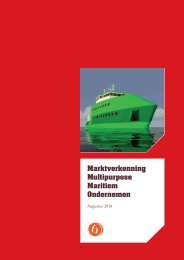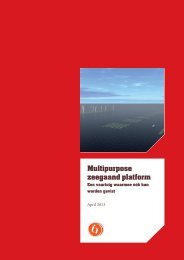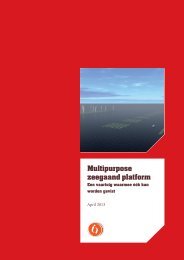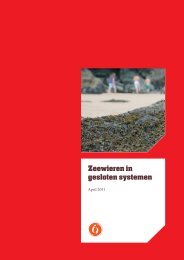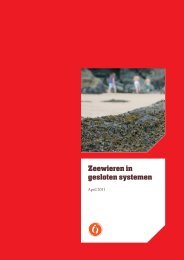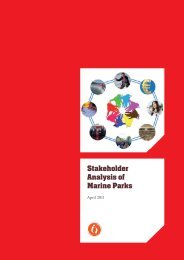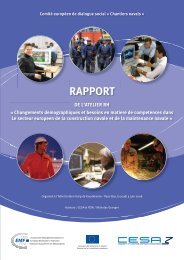Euromind (2009)
Creating an innovative European Open Maritime Industry through facilitating integration of standards into new business practices & services.
Creating an innovative European Open Maritime Industry through facilitating integration of standards into new business practices & services.
You also want an ePaper? Increase the reach of your titles
YUMPU automatically turns print PDFs into web optimized ePapers that Google loves.
European Commission<br />
Directorate-General for Enterprise & Industry<br />
2.9 Problem areas<br />
As stated on the first page of this chapter communication,<br />
in the widest sense of the word, is a key issue<br />
for effective global business and therefore a must for<br />
our high-tech European maritime industry. However,<br />
some essential requirements must be fulfilled.<br />
The first requirement is the need for standardisation<br />
on a European level in order to communicate efficiently.<br />
Reference can be made to several national<br />
initiatives like Net-S in Germany, Open Mind in The<br />
Netherlands and European/International initiatives<br />
like the European Maritime STEP Association and the<br />
Marine Trading Markup Language (MTML). However,<br />
a lot of coordination still has to be done in the field of<br />
standardisation of technical, financial and logistical<br />
data. Secondly, a European standardisation of data<br />
elements is required. This comprises a uniform “European maritime dictionary” including synonyms and the<br />
“grammar” which is being referred to as classification. Communication standards have to be identified in good<br />
practice studies of shipbuilding supply chain collaboration using XML and standardised drawing formats.<br />
The main problem is that initiatives on standards were mostly too small in scale and were not coordinated at EU<br />
level. This resulted in “standards” of too little scope being known to too few people leading to too little adoption by<br />
a sufficiently large body of players. This in turn leads to hindrance and thresholds for the application at European<br />
level of innovative e-business solutions.<br />
Foreword Introduction Issues faced by the<br />
European shipbuilding<br />
industry<br />
Inventory of standards<br />
supporting interoperability<br />
in shipbuilding<br />
Standards related<br />
to problem areas in<br />
shipbuilding<br />
The current situation in the European shipbuilding industry in applying standards in the digital exchange of<br />
product data is characterised as follows:<br />
• Several national developments led to various member states applying isolated parts of standards with<br />
resulting shortcomings in the national adoption of those standards in view of the international playing field of<br />
this industrial sector.<br />
• Different disciplines in the maritime sector (e.g. construction, electrical and mechanical) are applying their<br />
own specific standards.<br />
• In the different phases of the product life cycle, (partly) different specific standards are applied.<br />
Recommended<br />
good practices for<br />
shipbuilding<br />
Conclusions and<br />
recommendations<br />
13 of 14


